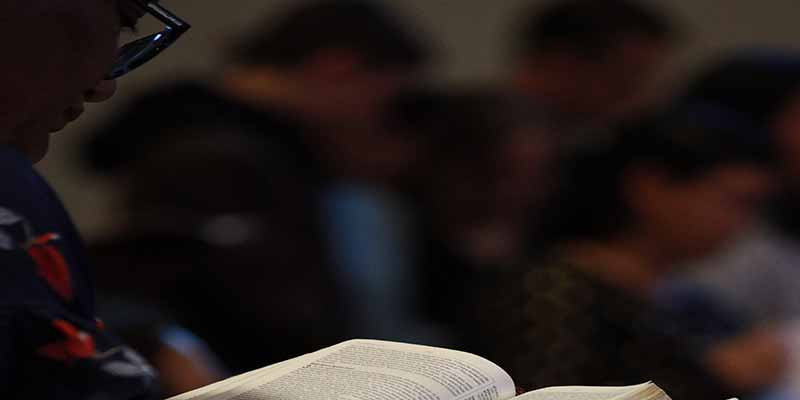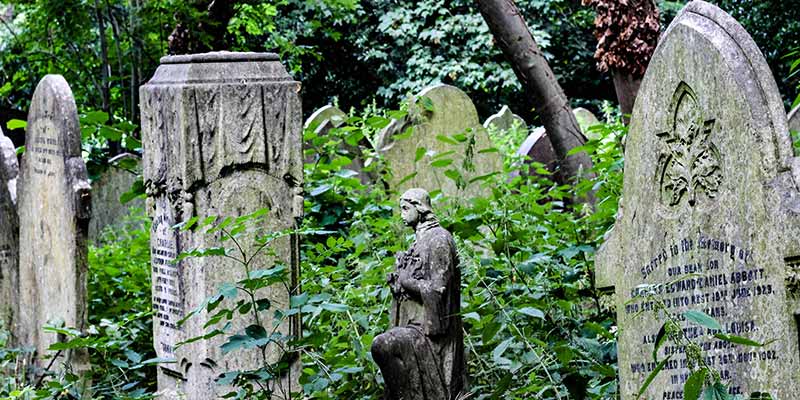Church Update – Coronavirus
Last updated 23 March 2020
The last few days have been a bit of a rollercoaster ride, so in the midst of all this ups and downs, I wanted to write to update you on what’s happening with church in this time of change and confusion.
If you want to go straight to our FAQ list, click here, otherwise, let’s start by reminding ourselves that King Jesus is still in charge of the world. As the psalmist puts it, he is
our refuge and strength, an ever-present help in trouble.” (Psalm 46:1).
At times of national crisis, it’s good to know where our strength lies: not in our health or wealth, or in government and leadership, but in our God. He is our ultimate refuge and strength. He’s the one who will ultimately see us through this crisis.
But the writer of Psalm 46 doesn’t just leave it at that. He continues with a “therefore“! Because God being in charge has implications for how we live and respond to a crisis. So here’s what he has to say about how we should respond. For if God is our refuge and strength, an ever-present help in trouble,
Therefore we will not fear, though the earth give way and the mountains fall into the heart of the sea, though its waters roar and foam and the mountains quake with their surging.” (Psalm 46:1-3).
There are many ways we can respond to this time of confusion, but let’s not paralyse ourselves with fear, for
The Lord Almighty is with us; the God of Jacob is our fortress.” (Psalm 46:7).
A fortress is a place you run to for safety and security. For a lot of us that may be our homes – and there’s great wisdom in self-isolation at this time – not just to protect yourself but to protect others. But sitting alone at home is not an antidote to fear. For that, we need something more. So why not, as long as this crisis lasts, try to create a place of calm and peace in your home, where perhaps for 15 minutes a day, you switch off your mobile phone, silence the persistent ping of Facebook and Whatsapp updates, ignore the landline (take it off the hook – if its urgent they’ll call back!), switch off Radio Fear Live and Television Turmoil, and once everything is quiet, take the final part of Psalm 46 to heart,
Be still, and know that I am God;” (Psalm 46:10).
Because it’s only as we silence the distractions, that we’ll find that God-centred place of peace and calm, where we can know with certainty that we are secure in the everlasting arms of our loving heavenly Father.
God is our strength and refuge, an ever-present help in trouble. Therefore we will not fear…” (Psalm 46:1-2)
As you’ll probably have gathered by now, the government’s advice on restricting “unnecessary” gatherings means that we’re temporarily shutting our church gatherings down. But this doesn’t mean the church has stopped, it’s just going to be different for a while as we enjoy some new ways to be together and support one another.
The full picture of what all of this will look like is still evolving- so please give us time to work out the things we don’t yet know! This is particularly the case with legally significant things like weddings, funerals, church annual meetings and elections. In part this is because we are still receiving new guidelines from the Government and Church of England daily. I know they very much value our prayers, so please pray for them!
But despite all the confusion, here’s what we do know.
Coronavirus FAQ
Every Sunday, starting from 22 March, and continuing until we're allowed to meet together again, we'll be providing an "online" church service for you that you can access on your PC, laptop, or mobile phone (in fact if you have a Smart TV there's probably a way to use that too). God-willing, this will be a way for our Hope Church Family of churches to keep moving forward together, even while we're apart!
The services will be available from just after midnight on Sunday morning from the "Church Online" page on our website. Everything you need for the service, including liturgy, hymns, and prayers will be included in the video. Some Sundays we'll offer you a choice of services, some Sundays there will only one. You can watch one or both, you can watch them alone, or with other members of your family, and feel free to pause at any point and discuss amongst yourselves what's going on!
In addition to these regular weekly online services, I'm also inviting you to join us for a short, 7-10 minute Daily Prayer service. At this challenging time it's important we keep praying - and I hope these videos will help! I'll publish them daily on the website, and again, everything you need to join in will be in the video.
Just because physical services have stopped, that doesn't mean we can't still serve one another. This is a great time for us to provide lots of pastoral support via the telephone and internet. Many of you will be feeling isolated - so pick up the phone and ring a neighbour - chances are they're feeling just the same!
- If you are living in Upton, and are willing to help a self-isolating neighbour out, or if you are self-isolating and need help, then please contact the Upton Town Council and Upton Baptist Church "Stay Connected" scheme. You can contact them on 01684 594991.
- If you are self-isolating in the Hanleys, and need help, please Click here to download a form which can be returned to Rev'd Sue Adeney. Alternatively, if you know of someone self-isolating, please print it and give it to them. Sue can be contacted by email here.
- If you are self-isolating in Welland, the Parish Council, through the village shop is offering a community care support service. The parish council will be sending round a leaflet detailing volunteer efforts. The shop (01684 310377) is offering free local delivery to anyone who has need. You can order over the phone and pay by card.
Sadly groups will need to stop meeting immediately. However individual group leaders may well be in touch to discuss alternate arrangements to allow discussion, chat, using Whatsapp and other means.
Carol writes, Our Hope Church childrens, youth, and family groups are switching to AIR mode!

This means they won't meet physically but will be reinvented to still give connection, fun, Bible truth, spiritual growth and mission in a way appropriate for the internet age we live in. In truth, we're praying that God can turn this seemingly bad time into a new opportunity for us in our calling. Through the power of the Holy Spirit this can be a significant new time for the advancing of God's plans and purposes!
So if you have grandchildren, nieces, nephews of primary age, please email carolunwin@gmail.com NOW to receive regular once a week emailable, internet-linked resources that you can pass on to parents of children you know. It doesn't matter where they live geographically, this can be your way of helping them to have fun and not get bored while physically isolating. It's also a great chance for them to hear more about our great Leader, Jesus, and a big help to their parents, who will be looking around for different resources to help entertain the children and to give them hope and a Christian explanation of this uncertain time.
Breakfast Church, Open House bring and share teas, and other ministries will also continue in AIR mode, possibly through Zoom (don't worry if you don't know what it is, more details will follow, and you don't even need the internet to participate!). But if you do have access to the internet you may want to try out connecting with people through Zoom or Skype now, to be ready to gather with people in AIR congregations soon to worship our great God, who is in control, and working for the good of those who love Him.
All meetings are on hold for now.
Some of our PCCs have Standing Committees, and will meet using online conferencing software to resolve any urgent business.
To date, Upton, The Croomes, and Ripple churches have not had their Annual General meeting. The Church of England has extended the deadline for an Annual General Meeting (APCM) to take place from May 31 to the end of October. We hope to reconvene before then. In the meantime all officer terms have been extended until the APCM takes place.
(Taken from the Church of England's Coronavirus guidance page).
If you are due to get married in the coming months, we recognise that this may be a time of great concern.
As of the Prime Minister's announcement on 23 March, the option of going ahead with your wedding with minimal numbers in attendance is no longer available. All weddings are therefore postponed, and we will do everything we can to accommodate you on a mutually convenient date when the current restrictions are eased.
The following advice is provided for those planning weddings, either who wish to go ahead or to find an alternative date in the future.
Before the wedding
Planning meetings between the couple and the priest can still proceed but must be help by telephone, skype etc rather than face-to-face.
Where it has not been possible for marriage banns to be read because of restrictions to public services, a Common Licence or Special Licence may be appropriate. The priest will be able to help you to ensure you have what is necessary.
(Taken from the Church of England's Coronavirus Guidance Page)
As of the Prime Minister's announcement on 23 March, all baptisms are postponed. We will work with you to find another mutually convenient date when restrictions are eased.
Meetings between candidates or parents/guardians/carers and clergy can proceed but must be held by telephone, Skype etc. rather than face-to-face.
Sadly, as of the Prime Minister's announcement on 23 March, all places of worship are now closed, even for individual prayer.
We hope this will be a short-term restriction. If you need pastoral support please contact barry@hopechurchfamily.org or 07757 610345.
With the schools closed, Clare is likely to be working from home for some of the time.
We are looking at diverting calls to her there.
The best way to reach her is via email at admin@hopechurchfamily.org. We will provide an update as soon as we have more consistent arrangements in place.
______________________
Taking all of this together, I hope that you can see that there is the beginning of a plan in place for how we can continue to worship together as church even though we cannot worship together in person. At a time like this, I am reminded once again of St Paul’s letter to the church in Ephesus, where he tells the believers,
Be completely humble and gentle; be patient, bearing with one another in love.” (Ephesians 4:2)
That is wise advice at any time, but especially now!
Take care, and may God bless you all in the coming weeks as we learn some new ways of being church.

Reverend Barry Unwin
Vicar, Hope Church Family

